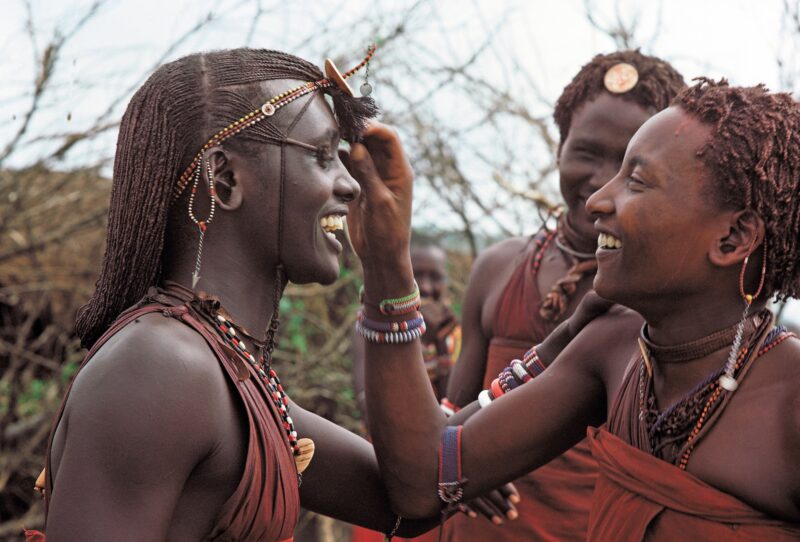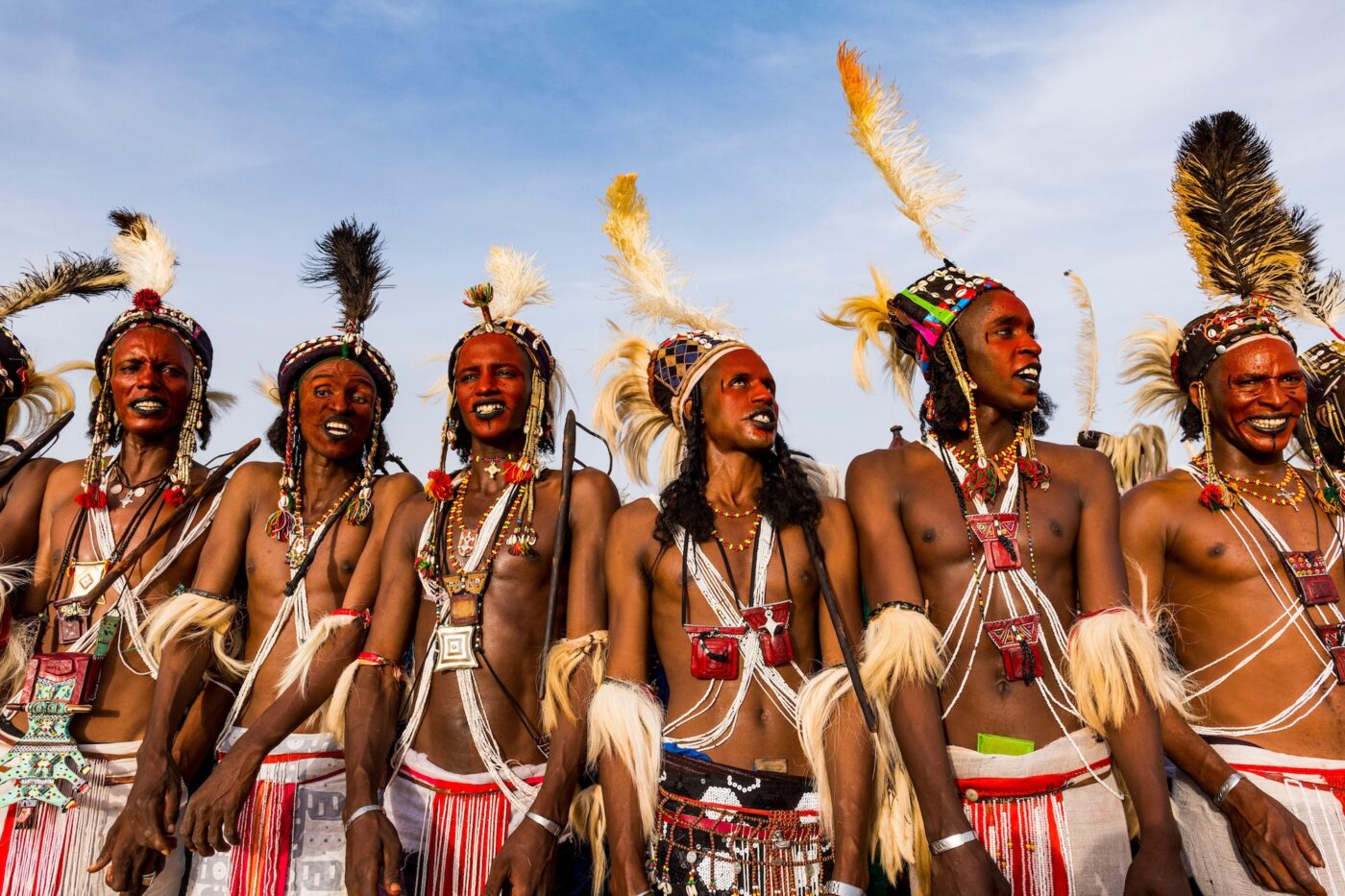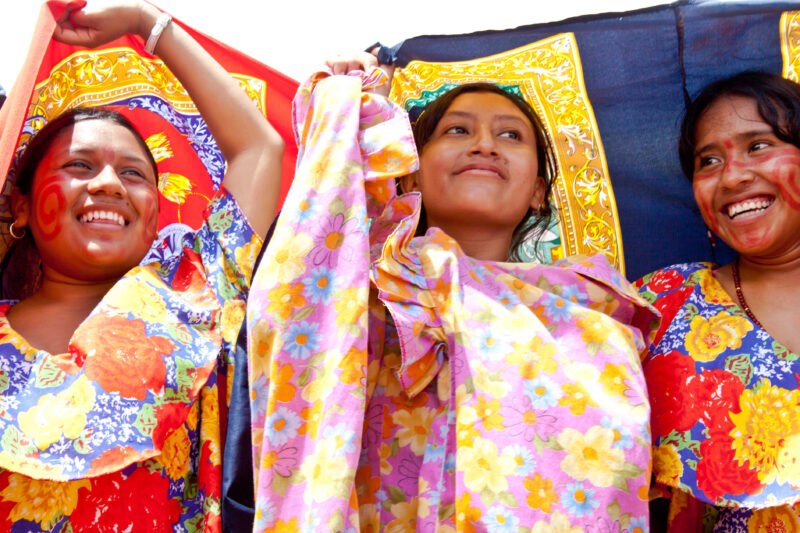After a lifetime of loving, good sex, like a good man, can be hard to find. “They don’t want to have intercourse, they’re very touched out,” says psychologist and sex educator Swati Jagdish. “Basically, the baby is clinging to the breast all the time. And for them, if this guy can just hug her and kiss her and cuddle with her and tell her that she’s special, that in itself is good for her.”
If the latter stage of our sexual selves can feel more like fatigue than fantasy, it’s for good reason. “I rarely encounter male clients who say to me, how can I make my sex more pleasing to women,” says sex and relationship specialist Cyndi Darnell. “If anything, men will come to me and be like, ‘How can I sustain my erection longer?’ And I’m like, ‘Why do you want to do that?’ And they’re like, ‘For her pleasure.’ When I say that’s not what’s going to give her pleasure, the response is back to: ‘Oh, but, but I want to have an erection for a longer time.’ And I’m like, ‘Cool, why?’ And they don’t know why! But it’s because it affirms their sense of masculinity. It’s got nothing to do with the woman.”
Sexual health psychiatrist and sex therapist Elisabeth Gordon, agrees. “The ones who are having sex with men generally still feel stuck in having to explain to men why penis-in-vagina sex is not the center of the universe for them,” she says. “Because a lot of them still have boyfriends who consume the same media that they do, but for whatever reason, have decided it doesn’t apply to them. So, the guys still want to have penis-in-vagina sex, or penis-in-butt sex; and they still want the girl to be all like I’m having a million orgasms from vaginal sex. They’re not.”
But from the Sahel to the Himalayas, many women from indigenous cultures are experiencing fulfilled and adventurous sex. And this is well after virginity, dating, marriage and motherhood. One marked characteristic of their liberated sex lives is a fluid approach to commitment. In fact, the Mosuo people of the Yunnan and Sichuan regions of China don’t traditionally marry and are free to take on as many lovers as they want. Their universe is so female centered that no word exists in their language for “father” and “husband.” Additionally, women live independently of their male lovers. Upon coming of age, they’re given their own private property, where they can begin inviting lovers into their bedroom. This arrangement, which is known as a “walking marriage,” can be long-term or last as little as one night.
Commitment is just as fluid in the Sahel, a region in West Africa. Here the women of the Wodaabe people can enjoy for a day or a lifetime a man of their choice. Selections are made during the annual Gerewol festival, where potential male partners put on a full dance performance to show off their prowess and attract a woman. There’s no limit on the number of husbands or lovers a woman can enjoy.
Sometimes these trysts are more like training. Among the Maasai people in East Africa, the “Morani” tradition empowers older women within the community to engage in sexual relationships with young warriors in training. This practice serves as an educational tool, teaching the young men about sexual techniques, responsibility, and becoming skilled lovers.

Maasai warriors • Photo: David Keith Jones/Images of Africa/Alamy.
For many non-western cultures, sexual exploration with different partners doesn’t end with marriage. In Indonesia, sex outside marriage is encouraged during the “Pon” festival. At this annual event, participants have to spend the night and have intercourse with someone other than their wife or husband. It is said that their wishes of good luck will only come true if they have sex with the same person at all seven celebrations throughout the year.
In the Himalayas, where a married son is usually given a portion of the family land, poorer families have come up with a unique tradition. With less land to offer their child upon marriage, these families usually seek one woman to marry several or all the sons at once. Called fraternal polyandry, this practice allows the woman to have several husbands at once –and the family to leave the estate intact.
“So many societies in pre-colonial times saw sex without shame, sin or guilt,” says gender and sexuality scholar Christine Que My Ha. “And then this concept of shame and sinfulness about sex came in. [Along with] gender binarism and heteronormativity from colonization and Christianity.”
Centuries later, these messages still linger and infiltrate through the lives of modern men and women. “For women, this is how you can be nicer and easier and more docile, more controlled, more submissive so that we can have a better life,” says sex therapist Donna Oriowo.
For modern women, these gender-based roles are not only archaic, but sexually frustrating. “All of it separates us from ourselves,” continues Oriowo. “And when we are separated from ourselves, our ability to hone in on the things that bring us joy, pleasure and peace become that much more difficult. It’s hard for us to identify.”
According to our experts, clearing the confusion for a more fulfilling and pleasurable sex life starts with accepting that you are in charge of the rules. “Sexual health is whatever makes you satisfied,” says Gordon. “As long as you’re not hurting anybody and you’re doing it in a consenting manner, sexual health is whatever makes you satisfied.” That requires the most important thing a woman can do: self-reflection. “How do we relate to our own body? Who are you attracted to? What do you want to do with them? What are your erotic preferences, and how do you relate to each of those? Are you comfortable with it?”

Wodaabe people at the Gerewol Festival • Photo: Michael Runkel/Robert Harding/Alamy.
Answering these questions is key to the process of reaching your deepest desires. “There’s only one person in it. And that person is you,” says Oriowo. “This means that the person that is most knowledgeable about what will bring you pleasure is also you. And what brings us pleasure when we’re 20 versus what brings us pleasure at 40 or at 60 or at 80, these are not the same things. And we are the one that gets to experience the full lifetime of that pleasure. So, a partner can share in pleasure with you, but they don’t necessarily give it to you.”
And perhaps, that’s the point. While sex can be a group activity, the experience is based on decisions you make alone. As a woman, taking control of those decisions can ensure that sex feels good every single time. “Your orgasm is your responsibility,” continues Oriowo. “If there are no orgasms, then the question to me is what responsibility have you taken for your orgasms? How have you gotten to know your body? How have you communicated about your sexual desires, wants and needs with your partner?
This process of discovery may be uncomfortable, but the result offers clarity, freedom and above all pleasure. After a lifetime of sex, the woman still has the power to experience the pleasure she wants. The key to unlocking this power is as simple as bread. “Sex is like a bread basket,” concludes Darnell, at the end of this long and satiating conversation on sex and culture. “Bread’s fantastic! But no one wants to sit down and just eat a loaf of bread. You want it with your salad. You want it with your soup. You want it with butter, you want it with oil. You want it with salt. The bread is there, but it’s not the center of the universe. And so, when your palate is like, ‘I want sweet or I want salty, or I want spicy, or I want softer or I want harder: satisfy that.”
—
Thanks to all our experts for this three-part series






